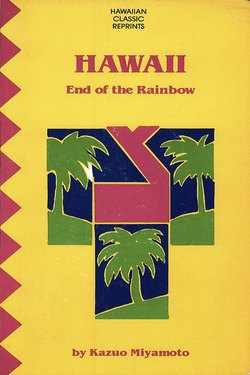Читать книгу Hawaii End of the Rainbow - Kazuo Miyamoto - Страница 7
На сайте Литреса книга снята с продажи.
Prologue
ОглавлениеApril 7, Saturday Honolulu
THE TELEPHONE RANG RAUCOUSLY. DR. Minoru Murayama laid down the Journal of the American Medical Association and sauntered over to lift up the receiver. "Hello, this is Dr. Murayama."
"Oh hello doctor. This is Arata—Sadao Arata. The old man is having a severe pain in the chest. Can you come over?" Extraneous voices of excited people at the other end could be heard through the receiver.
"OK. I'll right over."
Night call in Hawaii was not hard on the doctor. The climate was balmy all the year round and at ten o'clock the traffic was not heavy. In ten minutes the doctor arrived at his destination.
An elderly man was lying on his right side, face ashen gray, and beads of cold sweat stood out on his forehead. Spasmodic pain of a crushing nature seemed to come and go and he stoically endured the onrush of these waves of agony. He gasped for air. His daughter-in-law was bending over behind him, rubbing his back along the spine. Whether or not this maneuver was helping the patient she was not certain, but at least she was deriving satisfaction from having something to do. Not knowing what to do, a half a dozen members of the family milled around in the parlor.
Without saying anything, Dr. Murayama laid bare the elderly chest and applied his stethoscope. There was no murmur or leaking heart sound. The rhythm was regular, but the heart sounds were somewhat weak. Blood pressure was normal. The symptoms were without question those of acute damage to the heart muscle.
"Arata-san, I am going to give you an injection to make this pain easier" He took out an ampoule of demerol, emptied the contents into a sterile syringe, and injected it slowly into a vein of the old man's forearm. It was done very, very slowly. Meanwhile, the doctor kept his eyes glued on the patient's face. Apparent relief from pain could be discerned by the relaxation of the face muscles, deeper respiration, and limpness of the extremities. The patient seemed to lapse into sleep. After making sure that the patient was easier, the doctor turned to the middle aged son.
"Sadao, I think your father has had a heart attack. This pain will come back tonight and I wish to have him in a hospital where we can give him oxygen continuously to fortify the heart and injections to ease the pain if it should return. There are certain tests that must be carried out to make the diagnosis certain. If you have no objection, I'll call the hospital to send for an ambulance." The tone of the doctor's voice tolerated no argument and only acquiescence was expected.
"Do the best you can for him. We know that he has got something serious. He is 85 and he never was really sick up to now. And you know how he can stand any sort of pain."
"That I know very well indeed."
After seeing to the details of putting this man in an oxygen tent, arranging for a special nurse, and writing orders on the chart, Dr. Murayama returned home at midnight. He drank a glass of milk and ensconced himself in a deep chair. He could not sleep. During the war, Seikichi Arata came out of the Santa Fe Internment Camp and sojourned at the Arkansas Relocation Center until the end of the war. The doctor later discovered that his friend of high school days, Sadao Arata, was this man's son. During the waiting months of ennui, for the majority of elderly relocatees had nothing to do, details of the man's life were retold many times. Dr. Minoru Murayama could close his eyes and review the exploits of this pioneer of Hawaii.
